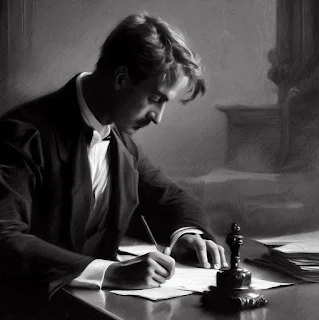Colonial Unity of 1885
The 1885 Treaty of Berlin led to the establishment of rules between European colonial powers during the Scramble for Africa.
Germany, Great Britain, France, Belgium, Italy, Portugal, Spain, and Russia had conflicts and disputes because they did not have agreed-upon rules for taking over new colonies during the Scramble for Africa. To solve this, they made the Treaty of Berlin in 1885, where European colonial nations joined forces and formed collective agreements.
The Scramble for Africa was a term used to describe European colonial powers' rapid and aggressive expansion into Africa. The Scramble for Africa occurred roughly from the late 19th century to the early 20th century, from 1880s to 1914. They were eager to get resources like land, minerals, and trade routes. This rush led to much competition and conflicts among the European powers as they tried to grab as much land as possible.
Key rules established in the 1885 Treaty of Berlin
The treaty established the principle of effective occupation, which meant that to claim sovereignty over a particular territory, a European power had to demonstrate that it had established effective administration, control, and influence over that territory.
European powers were required to formally notify other signatories of their intentions to establish new claims in African territories. This was meant to prevent sudden and secretive assertions of control and to promote transparency.
The treaty established the principle of free trade in the Congo Basin. This was intended to ensure that the region remained open to the commerce of all nations, preventing one power from monopolizing trade. The treaty of Berlin addressed navigation rights on certain African rivers, particularly the Congo and Niger rivers. It aimed to facilitate unimpeded navigation and access to these waterways for all European nations.
While driven by economic interests, the treaty recognized the need to promote economic development in the colonized territories. European powers were expected to contribute to developing infrastructure and resources to benefit colonial powers. The treaty emphasized using diplomatic means to resolve disputes that might arise between European powers in Africa. This was intended to prevent armed conflicts over colonial interests.
The 1885 Treaty of Berlin had an impact on resolving major conflicts
Portugal had longstanding colonial interests in Africa, particularly in regions such as Angola and Mozambique. The Portuguese clashed with other European powers, including the British, who sought to challenge Portuguese control in some areas.
The Fashoda Incident of 1898 was one of the most famous conflicts that occurred between Britain and France in Sudan. French forces, led by Jean-Baptiste Marchand, established a fort at Fashoda on the Nile River, challenging British interests in the region. The standoff was diplomatically resolved, with neither side wanting a full-scale war. This incident highlighted the potential for armed conflicts arising from overlapping territorial claims.
The colonization of the Congo Basin led to conflicts between European powers. For instance, Belgium's King Leopold II's personal claim to the Congo Free State was challenged by other powers, including Britain and France, resulting in diplomatic disputes and rivalries.
During World War I, there were several clashes between European powers in East Africa. German forces, under Colonel Paul von Lettow-Vorbeck, engaged British, Belgian, and Portuguese forces across the region. The campaign included battles in modern-day Tanzania, Mozambique, and other areas.
Colonial Powers Banned Together Under the 1885 Treaty of Berlin
The 1885 Treaty of Berlin was pivotal in establishing regulatory frameworks for European colonial powers amid the Scramble for Africa. Before the treaty, conflicts emerged among Germany, Great Britain, France, Belgium, Italy, Portugal, Spain, and Russia due to a lack of agreed-upon rules for acquiring new colonies. This led to the Treaty of Berlin's creation in 1885 as a solution.
The Treaty of Berlin established key rules, including the principle of effective occupation, which required showing control over a territory to claim it. Powers had to inform others of their intentions to claim new territories, promoting transparency. The treaty promoted free trade in the Congo Basin and allowed access to certain rivers. It also emphasized diplomatic resolutions to disputes, preventing armed conflicts.
The treaty's impact was evident in resolving major conflicts. Portugal's interests in Africa clashed with other European powers, and the Fashoda Incident of 1898, a British-French standoff in Sudan, showcased potential conflicts from overlapping claims. Colonizing the Congo Basin led to disputes like King Leopold II's claim being challenged by Britain and France. World War I saw conflicts between European powers in East Africa.
Signed on July 2, 1885, by Germany, Great Britain, France, Belgium, Italy, Portugal, Spain, and Russia, the Treaty of Berlin formalized rules for acquiring colonial territories and set guidelines to prevent conflicts among colonial powers. These nations united and collaborated under the treaty to coordinate their colonial ambitions in Africa.



























